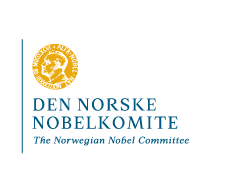2015 노벨 평화상, '튀니지 4자 대화기구' 수상 The Nobel Peace Prize for 2015
The Nobel Peace Prize for 2015
" Tunisian National Dialogue Quartet "
Representatives of the National Dialogue Quartet, which won the Nobel Peace Prize on Friday.
Anis Mili / Reuters 튀니지 4자 대화기구의 대표자들

edited by kcontents
케이콘텐츠 편집
'튀니지 국민 4자대화기구’는 272명(단체 67곳)이란 역대 두 번째로 많았던 경쟁자들을 제치고 노벨평화상을 깜짝 수상한 ‘튀니지 국민 4자대화기구’는 잘 알려지지는 않았으나 튀니지가 ‘아랍의 봄’의 성공사례가 되는 데 적지 않은 기여를 한 단체다. 국제사회는 이 단체의 민주화 노력이 인정을 받은 것이라면서 일제히 환영하고 나섰다. 9일(현지시간) AFP통신 등에 따르면 튀니지 일반노동조합(UGTT)과 산업·무역·수공업연맹(UTICA), 인권연맹(LTDH), 변호사회 등 튀니지 시민사회의 핵심단체 4곳으로 결성된 이 협의체는 국내외 언론에 거의 등장하지 않은 데다 노벨평화상의 수상후보로 거론되지도 않았다. 수상 발표 이후 인터넷 개방형 백과사전인 위키피디아에 이 단체를 설명하는 페이지가 만들어졌을 정도다. 하지만 ‘튀니지 국민 4자대화기구’는 2011년 일명 재스민혁명으로 지네 엘 아비디네 벤 알리 독재정권이 무너지고 튀니지가 민주주의 체제로 이행하는 데 핵심역할을 했다. 협의체의 중심은 튀니지 최대 노동단체인 UGTT이다. 이 단체가 2013년 말 당시 이슬람 성향의 집권 엔나흐다당과 야권의 협상을 중재한 결과, 지난해 1월 메흐디 조마하 총리를 수장으로 한 과도정부가 탄생했다. 과도정부는 새 헌법 초안 작성과 총선 일정 확정 등 업무를 순조롭게 치러내 정국 안정을 빠르게 꾀했다. 그해 2월 ‘성별과 종교, 정치적 견해에 관계없이 모든 국민에게 평등한 기본권을 부여한다’는 내용의 헌법이 채택된 게 대표적이다. 이 헌법은 남녀평등을 보장하고 여성의 권리를 보호하도록 규정해 아랍권에서 가장 진보적이고 민주적인 헌법으로 평가된다. 이 단체는 또 지난해 10월과 11월 총선과 대선에서 유권자 단체 활동을 지원하는 등 세속주의 성향의 베지 카이드 에셉시 대통령이 당선되는 과정에서도 상당한 역할을 한 것으로 전해졌다. 세계일보 박진영 기자 jyp@segye.com |

Oslo, 10 October 2015
The Norwegian Nobel Committee has decided that the Nobel Peace Prize for 2015 is to be awarded to the Tunisian National Dialogue Quartet for its decisive contribution to the building of a pluralistic democracy in Tunisia in the wake of the Jasmine Revolution of 2011. The Quartet was formed in the summer of 2013 when the democratization process was in danger of collapsing as a result of political assassinations and widespread social unrest. It established an alternative, peaceful political process at a time when the country was on the brink of civil war. It was thus instrumental in enabling Tunisia, in the space of a few years, to establish a constitutional system of government guaranteeing fundamental rights for the entire population, irrespective of gender, political conviction or religious belief.
The National Dialogue Quartet has comprised four key organizations in Tunisian civil society: the Tunisian General Labour Union (UGTT, Union Générale Tunisienne du Travail), the Tunisian Confederation of Industry, Trade and Handicrafts (UTICA, Union Tunisienne de l'Industrie, du Commerce et de l'Artisanat), the Tunisian Human Rights League (LTDH, La Ligue Tunisienne pour la Défense des Droits de l'Homme), and the Tunisian Order of Lawyers (Ordre National des Avocats de Tunisie). These organizations represent different sectors and values in Tunisian society: working life and welfare, principles of the rule of law and human rights. On this basis, the Quartet exercised its role as a mediator and driving force to advance peaceful democratic development in Tunisia with great moral authority. The Nobel Peace Prize for 2015 is awarded to this Quartet, not to the four individual organizations as such.
The Arab Spring originated in Tunisia in 2010-2011, but quickly spread to a number of countries in North Africa and the Middle East. In many of these countries, the struggle for democracy and fundamental rights has come to a standstill or suffered setbacks. Tunisia, however, has seen a democratic transition based on a vibrant civil society with demands for respect for basic human rights.
An essential factor for the culmination of the revolution in Tunisia in peaceful, democratic elections last autumn was the effort made by the Quartet to support the work of the constituent assembly and to secure approval of the constitutional process among the Tunisian population at large. The Quartet paved the way for a peaceful dialogue between the citizens, the political parties and the authorities and helped to find consensus-based solutions to a wide range of challenges across political and religious divides. The broad-based national dialogue that the Quartet succeeded in establishing countered the spread of violence in Tunisia and its function is therefore comparable to that of the peace congresses to which Alfred Nobel refers in his will.
The course that events have taken in Tunisia since the fall of the authoritarian Ben Ali regime in January 2011 is unique and remarkable for several reasons. Firstly, it shows that Islamist and secular political movements can work together to achieve significant results in the country's best interests. The example of Tunisia thus underscores the value of dialogue and a sense of national belonging in a region marked by conflict. Secondly, the transition in Tunisia shows that civil society institutions and organizations can play a crucial role in a country’s democratization, and that such a process, even under difficult circumstances, can lead to free elections and the peaceful transfer of power. The National Dialogue Quartet must be given much of the credit for this achievement and for ensuring that the benefits of the Jasmine Revolution have not been lost.
Tunisia faces significant political, economic and security challenges. The Norwegian Nobel Committee hopes that this year's prize will contribute towards safeguarding democracy in Tunisia and be an inspiration to all those who seek to promote peace and democracy in the Middle East, North Africa and the rest of the world. More than anything, the prize is intended as an encouragement to the Tunisian people, who despite major challenges have laid the groundwork for a national fraternity which the Committee hopes will serve as an example to be followed by other countries.
http://www.nobelprize.org/nobel_prizes/peace/laureates/2015/press.html
케이콘텐츠
kcontents
"from past to future"
데일리건설뉴스 construction news
콘페이퍼 conpaper
.









